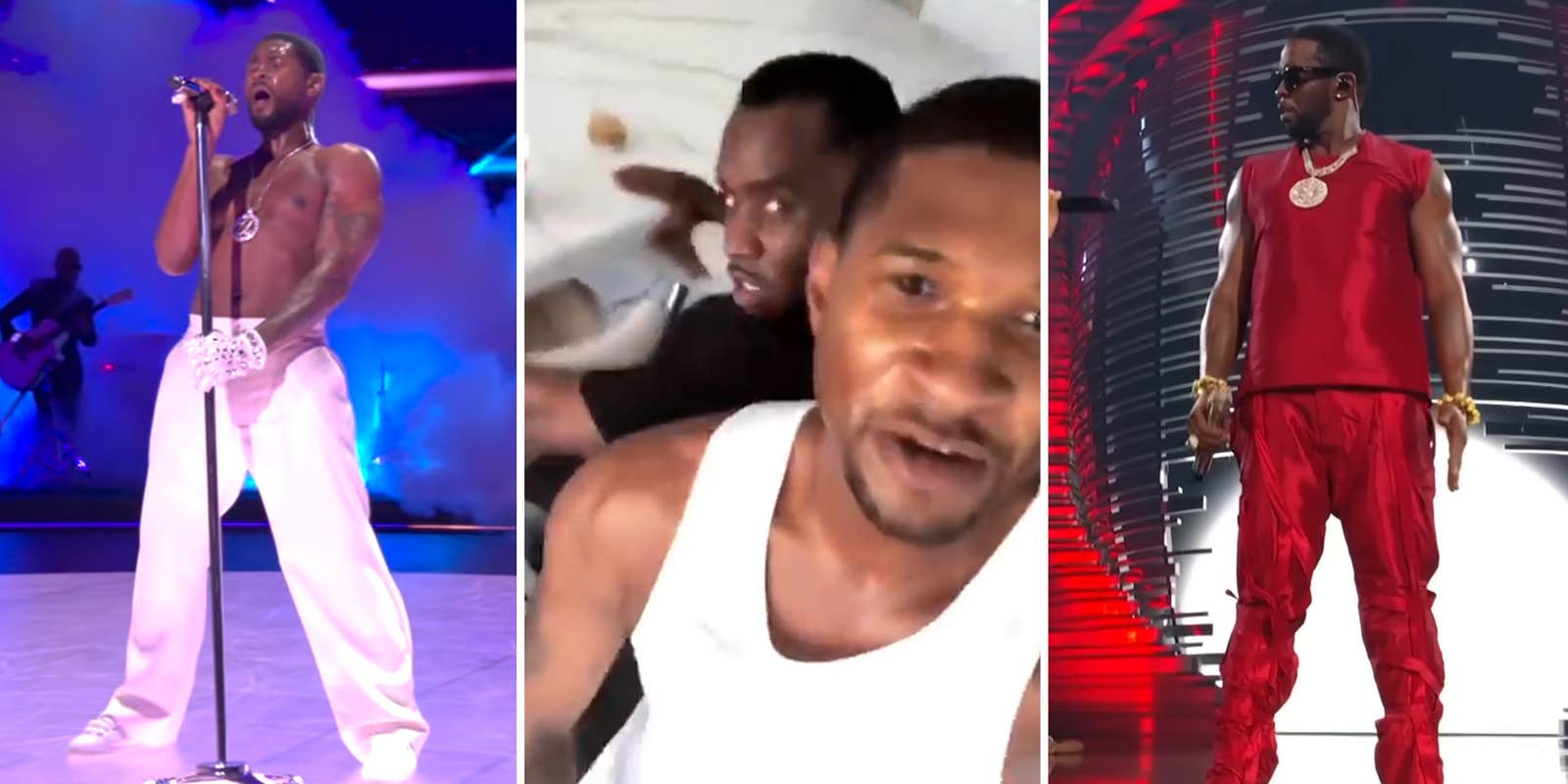In a digital age where social media archives become as telling as personal diaries, a 2017 clip shared by R&B luminary Usher featuring himself and Sean “Diddy” Combs has resurfaced. Once a candid snapshot of two music industry giants sharing a moment of artistic camaraderie, the video now stands at the intersection of controversy and a burgeoning legal storm surrounding Combs. The footage, capturing the duo singing along to “Kick in the Door” by the late Notorious B.I.G., a Bad Boy Records icon, has unwittingly become a homophobic focal point in the court of public opinion amid allegations against Combs.
The emergence of this clip coincides with a $30 million civil suit levied against Sean “Diddy” Combs by producer Rodney “Lil Rod” Jones. This suit makes a litany of accusations, including sexual misconduct, and marks yet another chapter in the saga of legal challenges that have begun to mar Combs’ storied legacy. Among the suit’s explosive claims is the suggestion that Combs had sexual encounters with an industry peer believed to be Usher—accusations that have catalyzed a frenzied reevaluation of past interactions, including the seemingly innocuous video. (Usher is not directly named in the lawsuit but is identified in a footnote as “He performed at the [Super Bowl] and had a successful Vegas residency.”)
The video and many other memes spawned a host of homophobic responses. “They sweating and I don’t see no workout equipment; They sick asf,” the poster, @LORAFRIMANEE, wrote in the retweet. One comment said, pointing to no evidence, “No, the Usher situation is actually super sad. He was definitely groomed by that man.”
Another video features Combs and Usher with comedian Kevin Hart, who apparently makes fun of Combs’s word usage.
What Combs reminisces about in the video is a significant piece of the relationship between himself and Usher, a mentorship that took place when the singer was a young teenager. Ahead of his 1994 self-titled debut, a Combs-led “flavor camp” presented an early trial for the young Atlanta singer, allegedly at the behest of L.A. Reid, co-founder of LaFace Records. He called the period the “hardest days” of his life in a 2004 interview. Despite the jokes and memes, no legitimate evidence of misconduct has ever surfaced.
For Combs, however, this new legal entanglement is not an isolated incident but part of an emerging pattern. It follows on the heels of accusations from Combs’ ex, Cassandra “Cassie” Ventura, and others, painting a picture of alleged criminal wrongdoing meticulously shielded by Combs’ towering stature in the entertainment world. Ventura’s lawsuit, filed in the Federal District Court in Manhattan under the Adult Survivors Act, a state law allowing people alleged victims of sexual abuse to file lawsuits after the statute of limitations has expired, resulted in an out-of-court settlement. The current lawsuit, laden with details of alleged additional misconduct, casts a longer shadow over Combs’ contributions to music and culture.
Within the 70-page filing in the Southern District of New York, Jones describes a troubling account of life in close quarters with Combs, alleging sexual coercion, the presence of underage girls at parties, and a culture of intimidation bolstered by firearms and veiled threats. These allegations starkly contrast the persona Combs has carefully curated—a titan of hip-hop and a savvy entrepreneur. It contains some explosive allegations about the context around Combs’ relationship with rapper Meek Mill and other celebrities.
The unfolding legal drama and the public’s reaction to it underscore a societal penchant for (often homophobic) sensationalism, often at the expense of substantive discourse. The focus on the sexual orientations implicated in the lawsuit, rather than the alleged abuses of power, reveals an undercurrent of homophobia that muddies the waters of accountability. This diversion from the core issues at hand—allegations of sexual misconduct, including against minors—highlights a broader societal failure to confront and dismantle power structures that enable such behavior.
As the legal battle against Combs progresses, the dialogue it inspires should strive for a level of discourse befitting the seriousness of the accusations, while sloughing the tendency to stray into the homophobic language. It is a moment that calls for introspection and a critical examination of the mechanisms by which the entertainment industry and society often gloss over or excuse misconduct among its most revered figures. The allegations against Combs, if substantiated, would reflect a grievous abuse of power and serve as a stark reminder of the enduring work necessary to foster an environment where respect and dignity are non-negotiable.
In the shadow of these serious allegations, the previously innocuous clip shared by Usher becomes a poignant reminder of the complexities and contradictions that often lie beneath the surface of public figures. As this story unfolds, it challenges us to look beyond the façade of celebrity and grapple with the uncomfortable truths that may lurk behind glamour and success.
We’ve reached out to representatives for Diddy and Usher.


